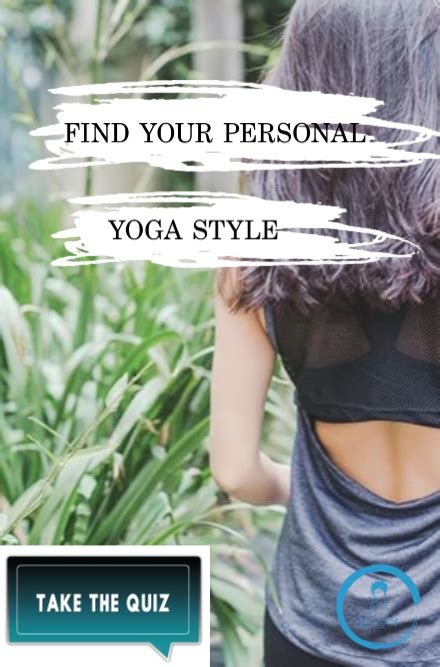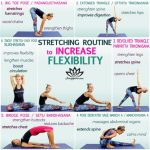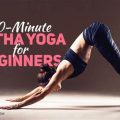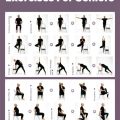Find Your Ideal Yoga Style: A Beginner’s Guide Quiz
Yoga offers a wide range of styles, each catering to different needs, goals, and personalities. If you’re just starting out, understanding the different forms of yoga can be overwhelming. Whether you’re looking for a spiritual practice, a workout, or stress relief, this quiz will help guide you to the right yoga style based on your preferences, fitness level, and goals.
Introduction
As a beginner, you might have heard names like Hatha, Vinyasa, or Kundalini but might not fully grasp what sets each of these yoga styles apart. Your ideal yoga style depends on various factors, including your fitness level, health objectives, and personal preferences. This guide aims to break down key styles of yoga into digestible, practical information to help you find the one that suits your lifestyle and goals. You will also explore historical, ethical, and practical considerations so that you feel confident in making an informed choice.
Key Concepts
- Hatha Yoga: A gentle introduction to the most basic yoga postures.
- Vinyasa Yoga: A dynamic flow where breath and movement are synchronized.
- Kundalini Yoga: Focuses on awakening energy through breath, movement, and meditation.
- Ashtanga Yoga: A more structured practice that follows a set sequence of poses.
- Yin Yoga: A slow-paced style where poses are held for a longer time to target deep connective tissues.
- Restorative Yoga: Aimed at relaxation and healing through supported poses.
- Hot Yoga: A vigorous form of yoga performed in a heated room to promote detoxification.
Historical Context
Yoga has evolved over thousands of years, originating in ancient India as a spiritual practice. It was initially a meditative discipline, but as it spread across the globe, it developed into different schools and practices. Modern yoga as we know it today largely stems from the teachings of the Hatha Yoga Pradipika and other classical texts. In the 20th century, figures such as T. Krishnamacharya and B.K.S. Iyengar were instrumental in popularizing yoga in the West, giving rise to many of the styles now practiced globally.
Current State Analysis
In today’s fast-paced world, yoga has taken on a wide variety of forms to meet the needs of modern practitioners. With the explosion of online platforms, virtual yoga classes have become a significant part of the yoga experience. Many people practice yoga as a form of exercise or stress relief, while others approach it as a deeper spiritual practice. Regardless of the reason for practicing, yoga has proven mental, physical, and emotional benefits, supported by growing scientific evidence.
Practical Applications
Depending on your goals, different yoga styles can offer varied benefits:
- If you’re looking to increase flexibility and strength, Ashtanga or Vinyasa might be ideal.
- If your aim is to reduce stress or anxiety, Yin Yoga or Restorative Yoga may be a better fit.
- If you want a detoxifying workout, Hot Yoga can help you sweat out toxins while working on strength and endurance.
- For a more meditative or spiritual practice, Kundalini can provide breath-focused techniques and chanting that stimulate deeper awareness.
Case Studies
| Case | Background | Yoga Style Applied | Results |
|---|---|---|---|
| Case 1: Stress Management | Mary, 35, a high-stress job and anxiety issues | Yin Yoga & Restorative Yoga | Reported decreased anxiety and improved sleep after 4 weeks of practice |
| Case 2: Weight Loss | John, 28, struggling with weight management | Hot Yoga & Ashtanga | Lost 12 pounds and increased strength over 6 months |
| Case 3: Spiritual Growth | Sara, 40, seeking a deeper connection with herself | Kundalini Yoga | Reported an increased sense of peace and purpose after 3 months |
| Case 4: Increased Flexibility | Mike, 22, a college athlete needing flexibility work | Vinyasa Yoga | Improved overall flexibility and muscle tone in 8 weeks |
Stakeholder Analysis
- Practitioners: Beginners seeking physical or mental benefits.
- Yoga Instructors: Professionals tailoring classes to meet individual needs.
- Health Experts: Promoters of yoga as part of holistic health routines.
- Yoga Studios: Offering various classes to accommodate different yoga styles.
- Digital Platforms: Providing online classes and tutorials to a global audience.
Implementation Guidelines
- Identify your goal: Are you aiming for fitness, stress relief, or spiritual growth?
- Start with the basics: If you’re a beginner, try Hatha or Restorative Yoga first.
- Find the right instructor: Choose a teacher that aligns with your objectives and preferred style.
- Use the right equipment: A mat, props like blocks and straps, and comfortable clothing will make your practice more effective.
- Consistency is key: Commit to practicing at least 3 times a week for noticeable results.
Ethical Considerations
Yoga is rooted in ancient traditions that have deep cultural and spiritual significance. It’s important to approach yoga with respect, recognizing its origins and the intention behind the practice. Western commercialization of yoga sometimes leads to a dilution of its deeper meanings, which can raise concerns about cultural appropriation. Practitioners should strive to honor the holistic philosophy of yoga, which goes beyond just physical postures to include mindfulness, ethics, and respect for the self and others.
Limitations and Future Research
While yoga has numerous benefits, it is not a one-size-fits-all solution. Some people might find certain styles too demanding or not aligned with their physical needs. Moreover, there is still much to be explored regarding the long-term impacts of specific yoga styles on mental health, physical rehabilitation, and chronic illnesses. Future research could focus on providing more evidence-based guidelines on how to tailor yoga practices to individual conditions, such as anxiety, arthritis, or hypertension.
Expert Commentary
Experts agree that the most important aspect of yoga is finding a practice that resonates with your personal needs and values. Whether you’re drawn to the more spiritual aspects of Kundalini or prefer the vigorous flow of Vinyasa, yoga can be a powerful tool for enhancing your overall well-being. It’s not just about flexibility or relaxation but about creating a balanced life, both physically and mentally. As you progress in your yoga journey, it’s essential to remain open to exploring different styles and approaches that might suit your evolving needs.








